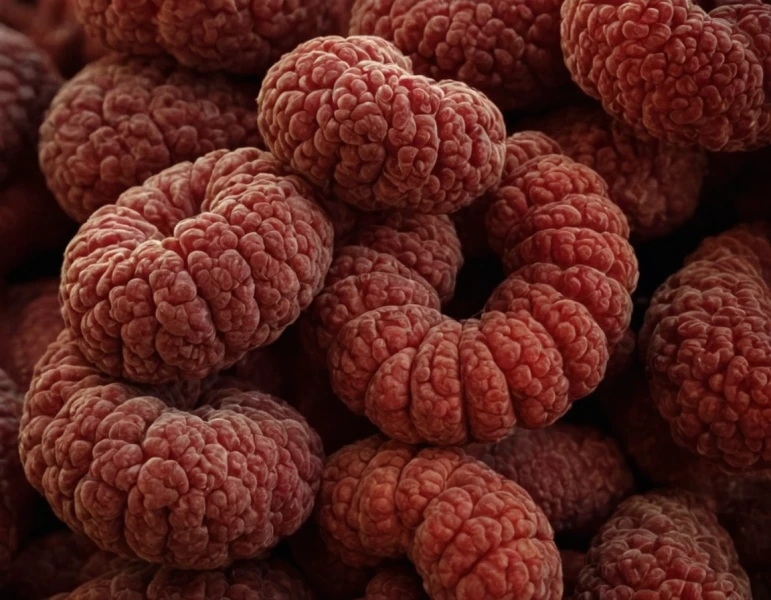Educa UNIVERSITY|HEALTH
Gut health and oxidative stress
Related Masters
Gut health and oxidative stress
I'll be honest. If you had talked to me about gut health and oxidative stress a few years ago, I would have looked at you funny, thinking they were terms out of a science book. But, over time, life taught me to roll with the punches how important it is to understand how these two determinants impact our overall well-being. I, Pablo Garcia, am going to tell you how the battle against gut discomfort and oxidative stress is not only real, but affects your entire body if you don't have them under control.
What is gut health?
Let's talk about the basics: your gut is not just that place where food turns into "waste." It's much more. To give you an idea, your gut is like the center of operations of your entire body. This is where food is digested, nutrients are absorbed and toxins are eliminated. In addition, the intestine hosts a huge community of bacteria, known as intestinal microbiota. These bacteria have the job of keeping everything in balance, fighting pathogens and supporting digestion.

But what happens when your gut isn't right? The chaos begins. Gut inflammation and imbalances in your microbiota (what some call dysbiosis) can lead to problems ranging from simple indigestion to chronic issues like irritable bowel syndrome. This is when I realized that the key to maintaining good gut health is in how we treat our bodies and, more specifically, what we eat.
How does gut health affect your whole body?
I'll tell you something personal. Years ago, my eating habits were a mess. I wasn't paying attention to what I was eating, and my stomach let me know it...with pain, bloating and discomfort. Researching and after several stumbles, I discovered that my gut was the center of my health. When the gut is not well, the immune system suffers, and your body cannot protect itself properly. Aside from that, gut problems can even generate skin problems, such as acne, and even affect mood. Yes, the gut is also related to how you feel emotionally! Because much of serotonin (the happiness hormone) is produced in the gut.
And what the heck is oxidative stress?
Now, let's talk about another hidden enemy: oxidative stress. This phenomenon occurs when there is an imbalance between free radicals and antioxidants in your body. Free radicals are those unstable molecules that, when in excess, can damage cells, proteins and even DNA. That's nothing!
My first contact with oxidative stress was when, after years of feeling exhausted for no apparent reason, a doctor explained to me that my body was silently fighting these free radicals. The reason? Bad eating habits, constant stress and exposure to pollutants.
Why should you care about oxidative stress?
Oxidative stress is not something you can ignore. It is linked to serious diseases such as cancer, heart disease, Alzheimer's and even premature aging. In my case, it was as if my body was screaming for me to make a change. Antioxidants come to the rescue, neutralizing those free radicals and protecting our cells. But, of course, if you eat poorly or live a stressful life, the antioxidants you produce won't be enough.
The connection between the gut and oxidative stress
Now that you have an idea of what gut health and oxidative stress are, you may be wondering: what does one have to do with the other? Much more than you might imagine!
Your gut, if inflamed or unbalanced, produces toxins and generates more free radicals, which increases oxidative stress. In turn, oxidative stress damages the intestinal lining, which aggravates digestive problems. It's a vicious cycle that, if not cut in time, can lead to chronic problems.
How to improve gut health and reduce oxidative stress
Here's where things get interesting. There are ways to break this cycle and improve your health! I'll tell you what worked for me.
1. Eat fiber-rich foods
Your gut microbiota needs fiber to stay healthy. Fiber-rich foods such as fruits, vegetables, legumes and whole grains help feed the good bacteria in your gut. In addition, fermentable fibers (such as those found in bananas and oats) are especially helpful.
2. Antioxidant-rich foods
Oxidative stress is fought with antioxidants, so you need to fill your diet with foods like citrus fruits, berries, nuts, spinach and green tea. These foods help neutralize free radicals and protect you from cell damage.
3. Supplements for gut and antioxidant support
In my case, I took probiotics to balance my gut microbiota and, to deal with oxidative stress, I started including vitamin C, vitamin E and glutathione supplements. These antioxidants are essential to protect cells from free radical damage.
4. Reduce stress
Emotional and physical stresscan increase free radical production, so it's not just a matter of diet. Stress makes everything worse. In my experience, simple things like meditating and light exercise made a big difference.
5. Get enough sleep
One of the biggest mistakes I made was not giving sleep a second thought. Getting enough sleep is key to keeping your body in balance and reducing oxidative stress. Your body needs those hours of sleep to regenerate.
Conclusion: Balance is key
If I've learned anything from this whole journey, it's that gut health and oxidative stress are intimately related. It's not about making a radical change overnight, but about being aware of how what you eat, think and do affects your body. Your gut needs balance, and if that balance is off, free radicals will do their thing. Care for your gut and combat oxidative stress, and you'll see how your body starts to respond positively.
Faculties
Trainings
The faculties embrace diverse academic disciplines and fields of study, opening doors to new perspectives and exploring different spheres of wisdom in a constantly evolving world.














